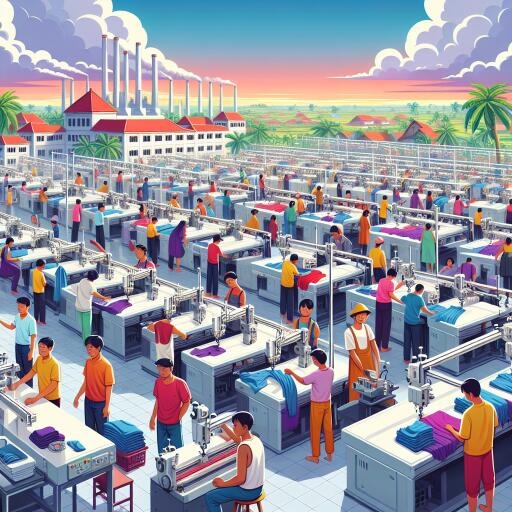Chinese Garment Factory in Indonesia Could Create 108,000 Jobs: Minister
In a significant development for Indonesia’s job market, Coordinating Maritime Affairs and Investment Minister Luhut Pandjaitan has announced that a forthcoming Chinese garment factory is set to employ up to 108,000 workers. This move is a part of a larger strategy to stimulate economic growth through increased investments and exports.
The minister disclosed that the factory would be strategically located in West Java, near the manufacturing plant of Chinese carmaker BYD in Subang. Additionally, there are plans to establish another facility in Sukoharjo, Central Java, further amplifying the investment’s scope. Luhut’s confidence in Indonesia’s infrastructure was evident as he highlighted the advantages of Kertajati International Airport’s proximity to Subang, which he believes will support the operational needs of the Chinese investors.
This announcement comes at a crucial time for the Indonesian textile industry, which has been facing significant challenges, including decreased demand from international markets. The past year saw industry stakeholders expressing concerns over reduced exports as global markets, including the United States and Europe, have experienced slowdowns. The Indonesian Textile Association (API) reported the closure of several factories and consequential layoffs that affected thousands of workers within the first five months of this year alone.
Luhut emphasized the urgent need for more investments to revive export-oriented industries within the country. He argued that attracting and prioritizing investments in these sectors is key to achieving an economic growth rate of 6.5 to 7 percent per year. Recognizing the impact of foreign dumping on the domestic textile industry, Industry Minister Agus Gumiwang has called for the implementation of measures such as anti-dumping policies and import safeguards to protect local manufacturers.
Through these strategic moves and the significant investment by the Chinese garment company, Indonesia aims to not only boost its export-oriented manufacturing sector but also provide vast employment opportunities to its citizens. This could mark a turning point in reviving the textile industry and setting a precedent for future investments in the country.
